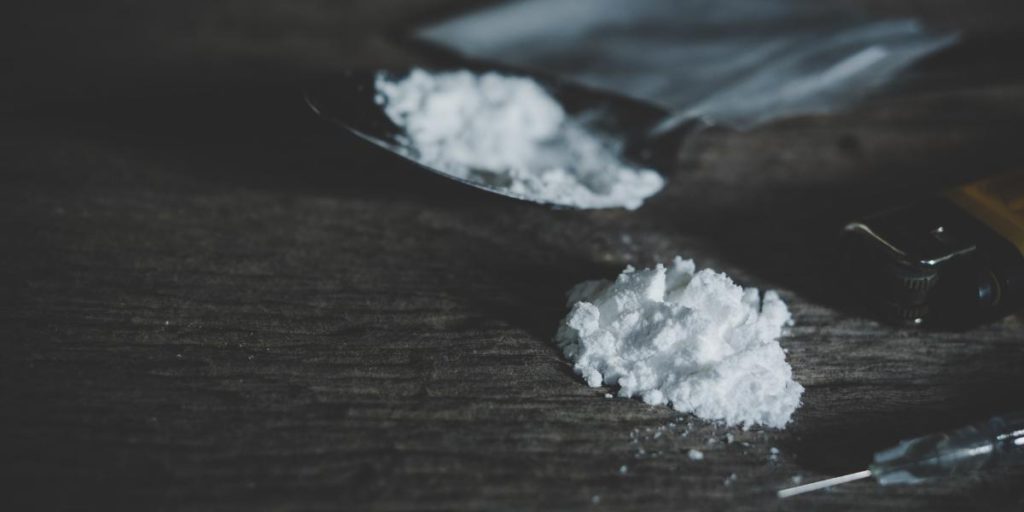Meth Withdrawal Symptoms and Treatment

Despite common stigmas and popular media portrayals of meth use and drug addiction, methamphetamine addiction in the United States is an increasing problem that affects people from all walks of life.
Meth, or crystal meth, is one of the most addictive substances on the illicit drug market, causing many people to develop an addiction before realizing it and continuing to use it to avoid meth withdrawal symptoms that can be overwhelming and dangerous.
The Substance Abuse and Mental Health Service Administration (SAMHSA) reports that 2.6 million people each year will use methamphetamines, and 1.5 million will develop a methamphetamine use disorder.
Because meth withdrawal is intense, uncomfortable, and sometimes dangerous, many people who try to stop on their own will relapse during the initial withdrawal stages. Professional medically assisted meth withdrawal treatment followed up with professional help can be the difference between recovery or a lifetime of addiction.
What Is Methamphetamine?
Methamphetamine, or meth, is an illegal, highly addictive stimulant. It comes in a fine powder or small crystal form and can be smoked, snorted, injected, or eaten.
Chemically, crystal meth is more addictive and potent than cocaine, affecting the central nervous system. Within minutes of ingesting meth, a powerful high floods the body with intense feelings of euphoria and motivation; the high can last up to twelve hours at a time.
When methamphetamines interact with the brain, they cause a flood of dopamine and serotonin, which produce feelings of pleasure and reward but are also responsible for biological functions like coordination, temperature regulation, and digestion.
Because methamphetamine is so powerful and effective, the brain and body quickly depend on it and build a tolerance that requires more frequent and higher doses to achieve any high.
Long-term meth use can physically alter the brain and biological functions, and quitting can require medical supervision and an in-depth, personalized treatment plan to get through withdrawal and overcome addiction. Addiction centers that offer medical detox in a residential treatment program have some of the highest success rates for overcoming methamphetamine addiction.

Effects of Meth Use
Meth is one of the quickest-acting drugs for providing a high, but the harmful effects of meth use also quickly become visible.
Meth is man-made from harsh and toxic chemicals, which have physical and mental effects, especially with repeated use. Some of the short-term physical and psychological effects of meth use include:
- Increased alertness
- Decreased appetite
- Increased heart rate
- Rapid breathing
- Sweating
- High blood pressure
- Overheating
- Talkativeness
- Aggression
- Increased sex drive
- Restlessness
- Paranoia
On top of the psychological and physical effects of meth use, the lifestyle many meth users live can put them at risk for external stress and increased dangers of diseases from sharing needles or risky sexual behavior.
Long Term Effects
Some long-term effects of meth use include:
- Extreme weight loss
- Malnutrition
- Meth mouth, or visible tooth damage and decay
- Violent mood swings
- Hallucinations
- Slow-healing wounds
- Open sores
- Heart damage
- Kidney damage
- Lung damage
- Muscle spasms
- Facial ticks
- Inability to feel pleasure
- Psychosis
- Sexual dysfunction
- Memory loss
- Seizures
- Severe withdrawal symptoms
Methamphetamine withdrawal is not as fatal as opioid or benzodiazepine withdrawal, but it can cause seizures and be incredibly uncomfortable physically and mentally.
Many people continue to use meth longer than they want to avoid withdrawal.
One of the main dangers of meth withdrawal comes from dehydration and malnourishment, which can cause unexpected health complications.
Because of all these factors, medical professionals highly recommend supervised medically assisted treatment and detoxification when meth users want to quit.

Symptoms of Meth Withdrawal
Experts from the National Institute on Drug Abuse (NIDA) note that because most meth users abuse meth in a “binge and crash” cycle, it is not unusual for the crash to last up to three days. The crash phase generally consists of the user sleeping while the body tries to recover. While users experience some initial withdrawal symptoms during this time, they are typically not awake long enough to recognize them.
Acute withdrawal occurs once the crash ends and the drug cravings return but go unsatisfied. Acute meth withdrawal has the most immediate and uncomfortable physical symptoms that eventually become physical and psychological symptoms of protracted withdrawal, a syndrome of long-lasting withdrawal symptoms.
Some chronic or daily meth users don’t experience a crash and will go into withdrawal within 24 hours of their last dose. Meth’s withdrawal symptoms differ based on how long a person has used it, how much they usually use, and pre-existing physical and mental factors.
Meth withdrawal signs and symptoms include:
- Exhaustion
- Mental fatigue
- Confusion
- Disrupted sleep patterns
- Body temperature changes from hot to cold
- Dehydration
- Nausea
- Abdominal pain
- Severe depression
- Thoughts of suicide
- Loss of coordination
- Muscle weakness
- Heart palpitations
- Seizures
Psychological effects and impulses can be just as dangerous and life-threatening as physical symptoms. Experts highly recommend addiction treatment centers be equipped to handle all aspects of withdrawal and provide follow-up treatment.
Meth Withdrawal Timeline
Meth withdrawal’s timeline and severity vary from person to person based on physical, psychological, and health factors, as well as how long they’ve been struggling with meth addiction and their using habits.
The average timeline and symptoms one can expect during meth withdrawal are as follows:
24 to 72 Hours After the Last Dose of Meth – Sharp decreases in energy, mental clarity, and function will lead to aggression, irritability, and confusion. Physically, abdominal cramping, sweating, and nausea are common. Some people experience increased appetite, trouble sleeping, and vivid dreams.
3 to 10 Days Without Meth – This is when withdrawal symptoms and drug cravings are the most intense. While the body adjusts to the absence of meth and tries to restore chemical balance, people experience severe depression, anxiety, and extreme fatigue. Physically, muscle spasms, body aches, tremors, and decreased sensitivity to pleasurable sensations occur.
2 to 3 Weeks into Meth Withdrawal – The physical symptoms start to fade, but intense drug cravings remain. Lingering fatigue is common, and depression and anxiety can increase. An individualized treatment plan to address the mental health symptoms is essential to avoid a relapse during this phase.
Four Weeks or Longer Meth Free – The physical withdrawal symptoms from meth will be over; however, lingering mental health and behavioral issues require follow-up treatment to maintain recovery.

Methamphetamine Withdrawal Treatment
Methamphetamine withdrawal can be overwhelming. Many users relapse within the first couple of days when they attempt to stop independently. Returning to any drug after a period of abstinence has a high chance of accidental overdose because of decreased tolerance. Acting on the impulses that depression and anxiety can cause also pose a risk of self-harm and endangerment.
Finding a treatment facility that can medically manage detox and provide support and resources throughout the process is the safest way to go through meth withdrawal.
Meth Detox and Addiction Treatment
Medical detox is the first step in addiction treatment and begins a path to lasting recovery. Struggling with meth addiction can be isolating, and admitting you need help may seem overwhelming, but you are not alone, and a better life is possible.
At Northridge Addiction Treatment Center, we offer a private, comfortable, and empowering residential treatment facility with an environment free from judgment and full of support through every step of treatment. Our on-site medical detox helps ease and manage withdrawal symptoms while providing around-the-clock medical care and attention.
Once you are through withdrawal, our licensed and compassionate team collaborates with you to develop a practical and effective treatment plan for sustainable sobriety. We use evidence-based treatments like dual diagnosis and cognitive behavioral therapy to treat co-occurring disorders and other aspects that contribute to addiction.
Our treatment specialists look forward to answering any questions you may have and helping you take the first steps toward a meaningful life-long recovery. Reach out to us today.
Find Meaningful Recovery
Our caring and compassionate specialists are eager to help you comfortably navigate this journey to recovery. Our individualized treatment plan, programs, and therapies may be a perfect match for you or your loved one. Let us assist you in living the happy life you deserve. It starts with a phone call.




